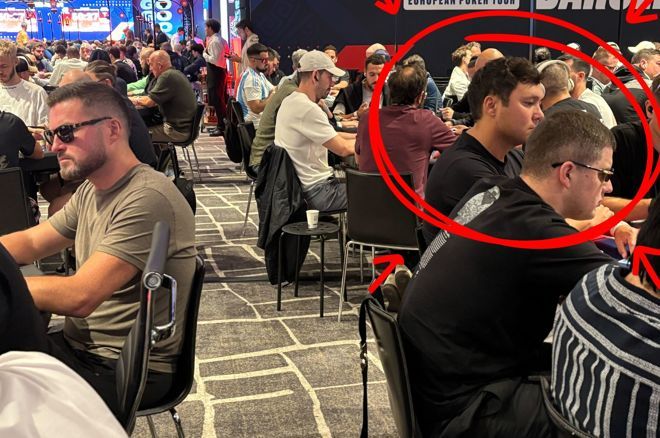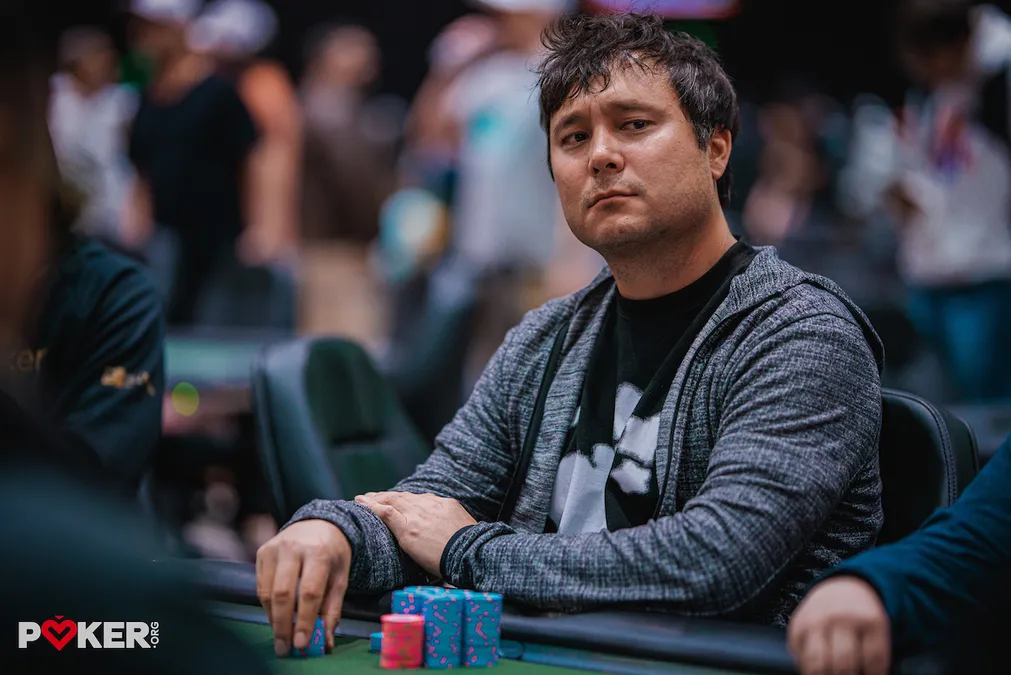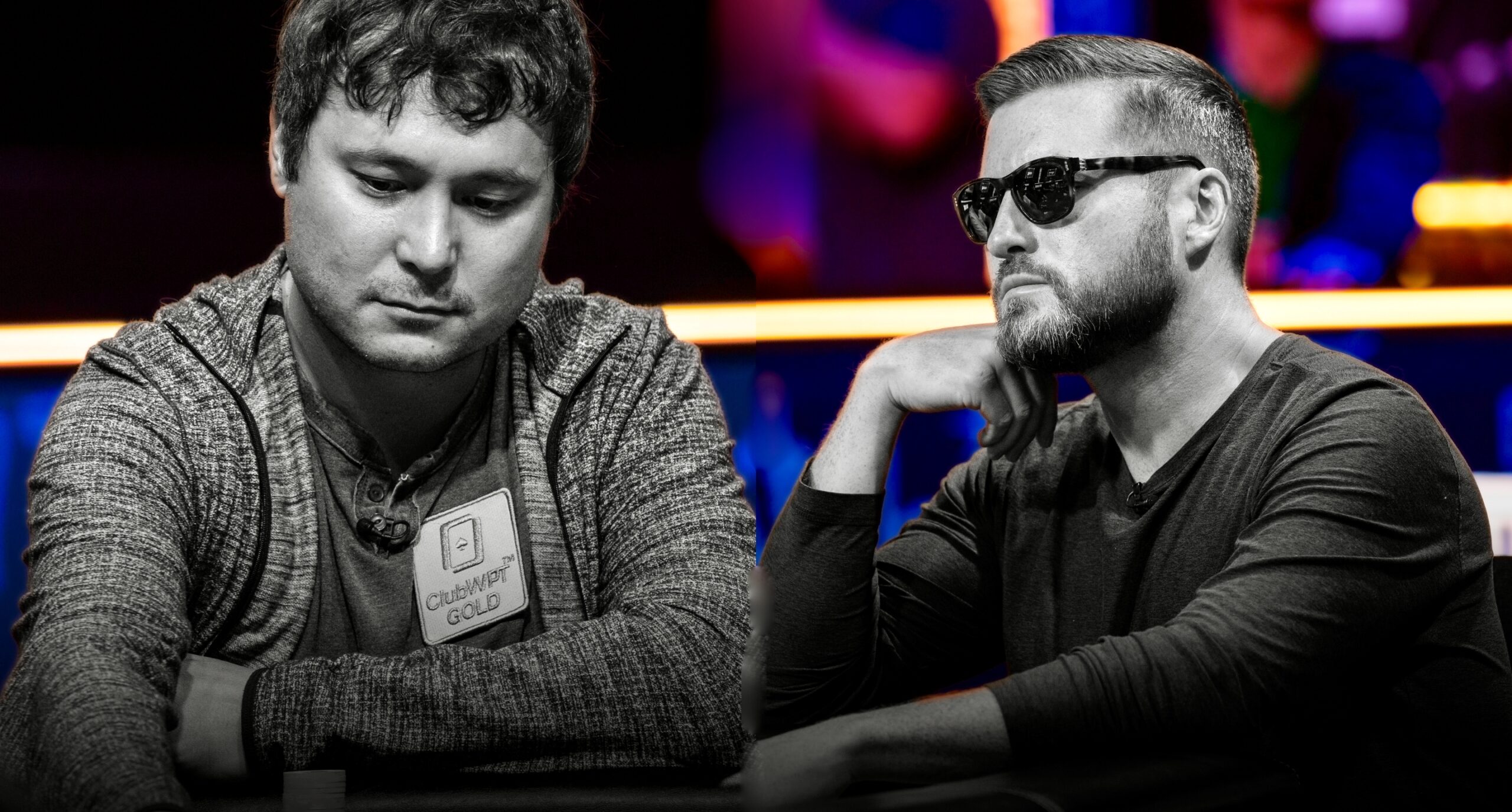Banned WSOP Champions Collide Again: The Scandal That Won’t Die

Poker has always thrived on drama. But every once in a while, the game delivers a story so shocking, so riddled with betrayal and controversy, that it refuses to fade away. The scandal surrounding Jesse Yaginuma and James Carroll — two men once celebrated as champions, now branded as pariahs — is one of those stories. And when fate seated them side by side at the European Poker Tour (EPT) in Barcelona, the poker world couldn’t look away.
The Rise Before the Fall
In June, during the World Series of Poker’s Millionaire Maker event, the dream scenario was on the line. A $1,500 buy-in, thousands of entrants, and the chance at life-changing money. For Yaginuma, there was even more at stake: a $1 million bonus from ClubWPT Gold if he captured the gold bracelet.
What followed shocked poker’s loyal community. Despite James Carroll holding a massive 9-to-1 chip lead, the match took a bizarre turn. Chip by chip, Carroll bled his stack away, leaving Yaginuma in position to claim the title and the coveted bonus. To outsiders, it looked like a miraculous comeback. To insiders — and eventually the WSOP — it looked like collusion.
The investigation was swift and decisive. The WSOP stripped Yaginuma of the bracelet and banned both players from future events. Instead of glory, they left with reputations in tatters and their names plastered across ESPN headlines for all the wrong reasons.

Jesse Yaginuma
Barcelona: A Twist of Fate
Two months later, in the glittering halls of Casino Barcelona, destiny intervened. Out of hundreds of players seated across the cavernous tournament floor, Yaginuma and Carroll found themselves mere feet apart, locked into Day 1b of the €5,300 EPT Main Event.
It was the kind of coincidence that felt scripted. The poker community buzzed online: Would they talk? Would they ignore each other? Would the scandal resurface right there in Spain?
Observers noted little interaction, at least outwardly. But the tension was impossible to miss. Around them, cards were shuffled, pots were contested, and dreams of EPT glory unfolded. Yet all eyes — reporters, railbirds, and players alike — kept flicking back to the two men at the heart of poker’s most infamous scandal of the summer.
The Silence That Spoke Volumes
Neither Yaginuma nor Carroll has spoken publicly since the WSOP’s verdict. No apologies, no explanations, no denials. Just silence. And in poker, silence often screams louder than words.
Yaginuma, starting with 30,000 chips, managed to hover just above stack, climbing to around 40,000. Carroll, meanwhile, was surging, ballooning his pile to over 100,000. The optics were almost too perfect: the accused chip dumper once again wielding a mountain of chips, the supposed beneficiary struggling to hold his ground.
But this time, there would be no collusion. No bonus on the line. Just the raw test of skill and stamina that defines the EPT. Still, the past lingered like cigarette smoke in the old poker rooms — heavy, unshakable, unforgettable.

James Carroll
A Sport Fighting for Its Soul
Poker has always danced on a razor’s edge between brilliance and betrayal. Legendary bluffs, miraculous comebacks, and tales of resilience sit side by side with scandals, cheats, and whispered conspiracies. The Yaginuma-Carroll affair didn’t just tarnish two careers. It cut at the heart of what the game represents: fairness, integrity, the purity of competition.
For the WSOP, the decision to ban them was as much about protecting poker’s image as punishing wrongdoing. After all, the Millionaire Maker isn’t just another tournament. It’s a chance for the everyman to sit down, pay $1,500, and walk away with seven figures. To see that dream sullied by collusion felt like a betrayal of poker’s very DNA.
And yet, here they were, welcomed by the EPT, seated among the game’s elite in Barcelona. The contrast was striking. In Las Vegas, they were villains. In Spain, they were just two more competitors chasing glory.
The Million-Dollar Question
Much remains murky. ClubWPT still paid Yaginuma the $1 million bonus, despite the bracelet being withheld. The exact arrangement remains undisclosed, fueling rumors and speculation. Was it contractual obligation? Was it backroom negotiation? Whatever the case, Yaginuma got paid, Carroll got banned, and poker fans got a story that refuses to die.
The irony is cruel: both men walked away with over $1.1 million each in official payouts, splitting first and second place prize money. Financially, they emerged richer than most who ever sit at a WSOP table. But reputations? Those are harder to rebuild.

Two poker players who engaged in £730k 'chip dumping' scandal given bans
Why the Scandal Won’t Fade
Poker loves redemption arcs. Mike Matusow, Stu Ungar, even Hellmuth himself — the game thrives on comeback stories. But collusion cuts deeper. It isn’t self-destruction. It isn’t variance. It’s a conscious betrayal of the game itself.
And that’s why the presence of Carroll and Yaginuma in Barcelona struck such a nerve. Every shuffle, every raise, every fold carried the weight of their past actions. The scandal wasn’t just in the rearview mirror. It was riding shotgun, reminding the poker world that some wounds take longer to heal.
The Road Ahead
Will either man rebuild his legacy? Can a deep EPT run, or perhaps a future title overseas, overshadow the stain of the Milly Maker? Time will tell. For now, the poker community watches with suspicion, curiosity, and yes — fascination.
Because no matter how much the game evolves, it’s stories like this that grip us. Tales of greed, betrayal, second chances, and the thin line between glory and disgrace.
In the end, Barcelona gave us more than a tournament. It gave us a reminder: poker is not just about the cards. It’s about the characters. And few characters in recent memory are more polarizing than Jesse Yaginuma and James Carroll, the banned champions who found themselves side by side once more.





